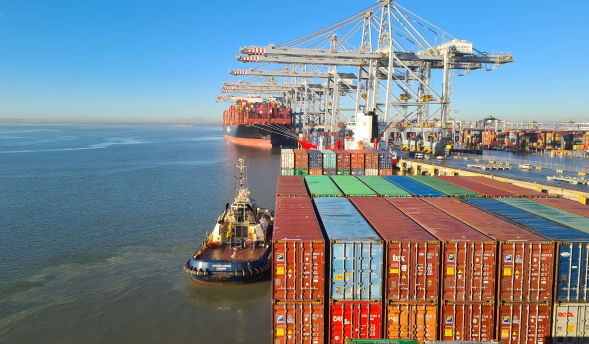With the towage operator Svitzer converting its whole fleet of 10 towage tugs in London to be powered by carbon-neutral marine biofuel, DP World-owned Unifeeder will be able to reduce its emissions.
Replacing marine fuel oil with the carbon-neutral biofuel enables Svitzer, a part of A.P. Moller Maersk, to offer a new towage service, called Ecotow, which unlocks approximately 90% CO2 reduction in Scope 3 emissions from their towage operations.
Unifeeder, which has approximately 100 vessel assists in London annually, will initially deploy Svitzer’s EcoTow services in London for all vessels which require towage services on the River Thames.
“We are pleased that Svitzer has given us the opportunity to further improve our scope 3 emissions and we hope this will serve as an inspiration for our other vendors and partners,” commented Michael Bonde, COO, network & operations at Unifeeder.
The Svitzer tugs will operate entirely on Hydrogenated Vegetable Oil (HVO), which Svitzer considers an important first step in the roadmap towards a carbon-neutral towage sector.
The Ecotow product exclusively uses sustainable second-generation biofuels, which are fuels produced from waste material such as used cooking oil as feedstocks and are certified by ISSC or RSB, according to a statement.
Relative to marine diesel, these biofuels reduce carbon emissions by 100% on a tank-to-wake basis and approximately 90% on a well-to-tank basis.
“Although it is critical to lower all types of emissions regardless of scope, the scope 3 emissions are essential to focus on as these usually make up the majority of a company’s carbon footprint,” noted Unifeeder in a statement.
What are scope 1-3 emissions?
Scope 1: Direct emissions
Scope 1 emissions are direct emissions stemming from company-owned and -controlled activities.
Scope 2: Indirect emissions related to electricity
Scope 2 emissions are indirect emissions stemming from the electricity purchased and used by a company.
Scope 3: All other indirect emissions
Scope 3 emissions are all other indirect emissions linked to a company’s operation, such as procurement, business travels, waste, and water.







